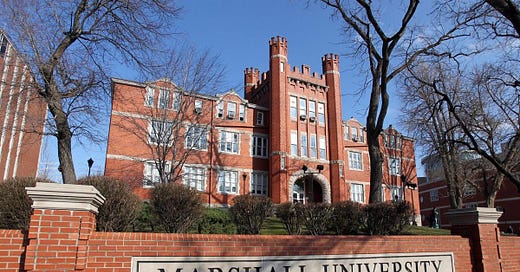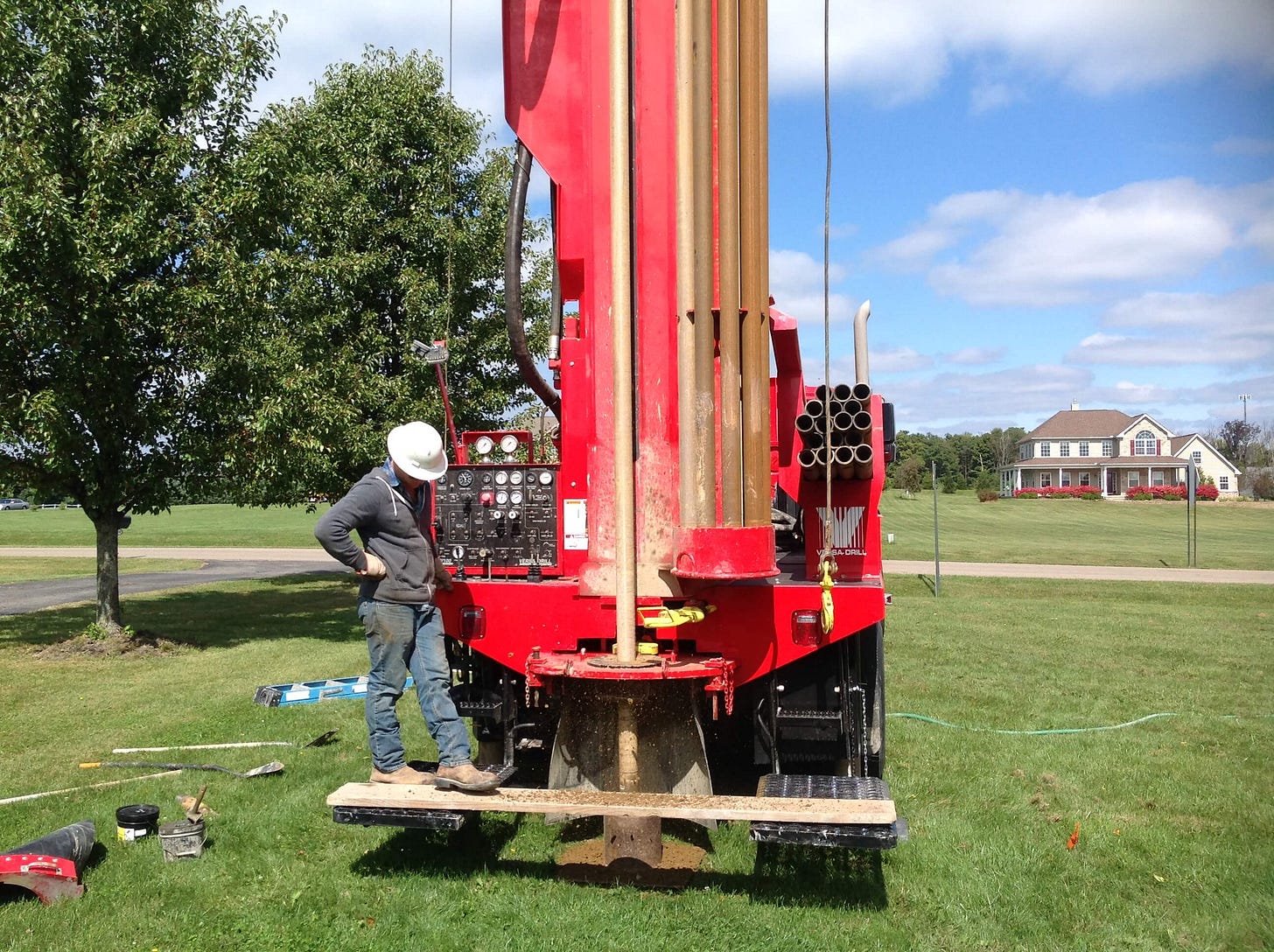(My alma mater, where I met Jan.)
Jan and I spent a lot of time in school. We met in our undergraduate years. Jan also has a master’s in counseling. I have a medical degree. Our poor kids are saddled with parents who really believe in higher education. We were both driven, hard-working students who were horrified at the idea of failure. Ultimately, those traits helped us to navigate the winding labyrinth of higher education from high-school on up.
In our culture, a college education is obviously held in high regard. (Whether it should be so, based on outcomes and the behavior of students, is a thing of increasing debate.) Many Americans define themselves by their degrees. And within that universe of degrees, many define themselves by their alma maters. (You may know the old joke: ‘How can you identify a Yale man when he walks in the room?’
‘Don’t worry, he’ll tell you.’
Ditto any other institutions.
This is so much the case that parents spend shocking sums of money for their children to attend ‘the right’ pre-schools, so that they can go to ‘the right’ grade-schools, high-schools, and can then be privileged to spend even more impressive amounts on ‘the right’ universities and graduate programs. To many Americans, education is the essence of identity. While I’m less concerned with the ‘name-brand’ aspect of the school, I always wanted my children to have at least a four-year-degree. And frankly, I thought they should also have graduate degrees. But I think I need to ask if I wanted all of that for the right reasons.
For quite some time, the political and academic policy-makers of our nation have been operating under the assumption that everyone should go to college. We have student loan programs, grants and quotas and we go through all sorts of machinations to encourage college education (and its unfortunate natural association, indebtedness). It’s hardly surprising, therefore, that the amount of student debit is crushing.
Certainly, a college education is a wonderful, valuable thing for some people. I’m not trying to discourage or devalue it. But what I’m wondering is this: do we associate individual worth with level of education? And if so, why?
A college education hopefully teaches students useful, marketable skills. (I mean, let’s face the reality that college as it exists now is far more about jobs than anything else.) Enter AI. The news ‘from the front’ is grim. Students use AI to complete assignments. Their basic skills, especially those mundane reading and writing skills, are degrading rapidly.
College is also supposed to widen students perspectives on different people, experiences and on the past and the future. But these days, in our current societal chaos, it seems that the main way this plays out is in the form of disdain for the past, and attack/counterattack against every newly discovered historical or cultural enemy.
I obviously paint with a broad brush here, and I know that there are wonderful educators and students out there.
But the important question is does college make anyone…better? Does it make us moral? Does it make us more valuable than anyone else on some fundamental level?
If our kids don’t go to college (and I address this particularly to those parents with degrees), will they disappoint us? And if so, why? Will we tell our friends that we keep hoping they’ll go back to school one day? Will we (God forbid) give our non-college educated children the ‘I’m so disappointed in you for not reaching your potential…’ lecture? And if we do, will it be based on their earning potential? Or their social status?
Or will it be based largely on our own pride?
Some in America believe that the way to stop people from committing crimes is for them to be financially successful…and educated. Is that why we focus so much on college? Because if so, it’s a fallacy. Rich, learned people have always been as capable of wrong as the poor and unschooled.
Or is it our modern confidence in educational institutions and educators themselves? For the last 100 years or so, we have been conditioned to believe that education properly occurs only in a formal educational setting, and is provided by professional educators. (Not, of course, by reading books or experiencing life or doing a job well.) Great men and women from history, open-source online education, the home-school movement and the public library are all evidence that one can be educated in many ways, to great effect. The degradation of basic skills aside, AI could also prove to be a decentralization of education that renders traditional models completely irrelevant. (And yes, it may happen to medicine as well.)
Maybe our view of college stems from a belief that the life of the mind is superior to the life of physical work. Or that if we work with our hands and bodies, we are susceptible to injury and loss of income, but if we work with our minds, we are not. Of course, people have de-conditioning, obesity and heart attacks from sedentary jobs. They have strokes and head injuries and any number of neurologic diseases, all of which render that line of thinking false.
It could also be because we forget much we count on skills not developed in college. One day our well-pump stopped working. We have a wonderful, deep well with cold, crystal clear water. (Based on the way kids, plants, dogs and cats thrive there, it might be the fountain of youth.)
I watched as a group of men pulled up in a huge truck, extracted the old pump, placed the new pump, and had it all humming along again in no time. I can do a lot of things with my medical degree. But without them I’d have been lugging water in bottles, or from the creek. Their skill, like so many, was not based on a college degree. But it was of incredible value.
One can do any job and be intelligent, or have any degree of education and be moral and good; or bad. The lowliest laborer can be a sage; Socrates had no degree. He was a stone-mason. And I read nothing in the Sermon on the Mount that says ‘Blessed are the educated, for they are better than anyone else.’ The Constitution makes no such demarcations either, despite the fact that I’ve heard college educated people assert that ‘nobody should be allowed to vote unless they have a degree.’ Such hubris!
Education is wonderful and generally elevates the educated. But so does reading and work and travel. So does honest work, at home or away, with a shovel, a truck, a rifle or a babe in arms. As such, America shouldn’t be a place of educational aristocracy, but of educational diversity.
And most important, we must always struggle against the belief that anyone’s degree of worth is defined by the presence or absence of a degree.





I'm writing about our well at the farm and the fountain of youth this week. I love serendipity, and so many of my thoughts on high education echo the insights and questions you raise in this piece. I'm a product of academia and worked through most of my mentors turning their backs when I chose horses over graduate school. I thank higher education for teaching me how to fine-tuning my inquiry, how to research, and how to sort through information to help me see interconnectedness and the bigger picture -- but as you state here, we're sending kids to school for employment and not a life of the mind. Thank you for laying it all out.
> As such, America shouldn’t be a place of educational aristocracy, but of educational diversity.
I read a recent article here, on substack, where they argued for a new way to allow job placements outside of university degrees, to include more, or the addition of, apprenticeships, relevant testing etc. I think it's still a half-boiled idea, but I think a fully developed idea could really change the way we approach education (if the world is meaningfully opened up to us and training, including university education, was relevant to the work chosen).